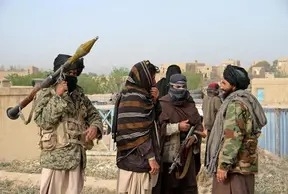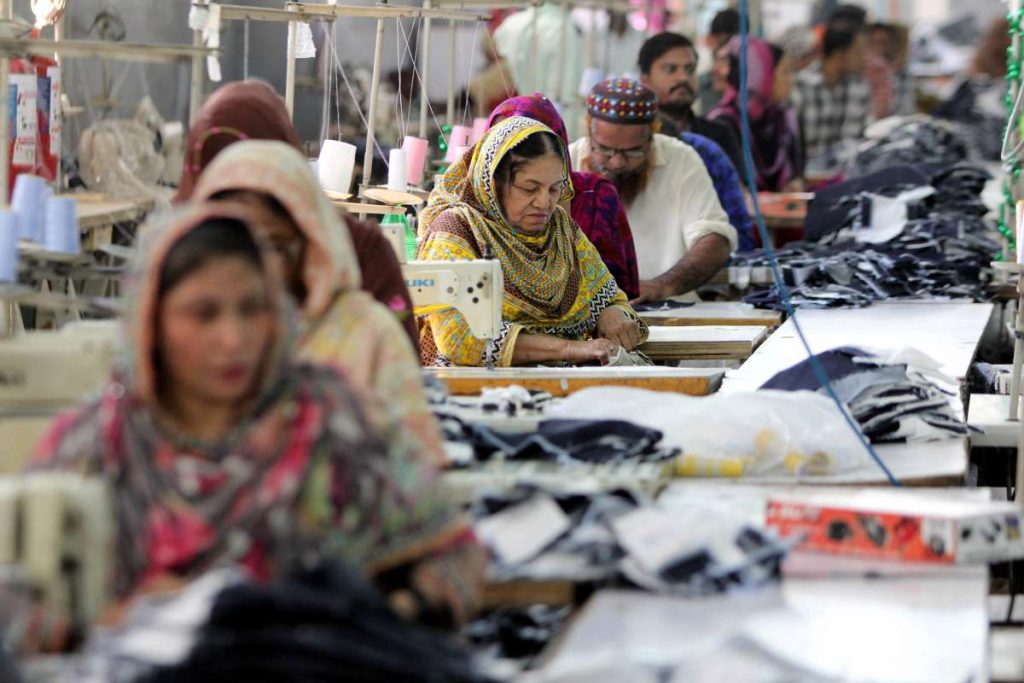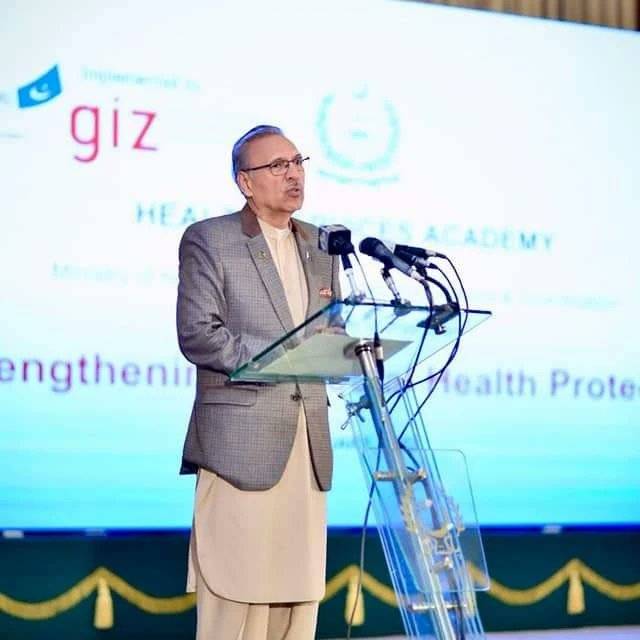Pakistan grapples with a myriad of challenges, encompassing poverty, insecurity, sectarianism, and terrorism. These challenges trace their origins to a deficiency intolerance, limited public awareness, and widespread illiteracy perpetuated by an ineffective education system. Unfortunately, the pivotal role of education has consistently been overlooked in Pakistan, resulting in underdevelopment across various facets of life. President Arif Alvi calls for an Education Emergency to Address Urgent Challenges
In the face of numerous challenges, ranging from political instability and economic turmoil to rising debt, expanding terrorism, ongoing sectarian violence, and social instability, Pakistan confronts the additional predicament of subpar education standards. The Pakistani president, Dr Arif Alvi, has officially declared an “Education Emergency” in the country, emphasising the pressing need for reform. On the occasion of World Education Day in January 2024, he advocated for the enrolment of approximately 26 million out-of-school children in Pakistan.
President Alvi underscored the staggering shortage of schools, estimating a deficit of around 50,000 educational institutions, attributing this shortfall to the meagre allocation of funds for education.
In tandem with President Alvi’s concerns, the caretaker minister for Federal Education and Professional Training, Madad Ali Sindhi, underscored the repercussions of inadequate education as a root cause of societal backwardness, contributing to elevated levels of poverty, crime, violence, and terrorism.
In the contemporary context, Pakistan grapples with a myriad of challenges, encompassing poverty, insecurity, sectarianism, and terrorism. These challenges trace their origins to a deficiency intolerance, limited public awareness, and widespread illiteracy perpetuated by an ineffective education system. Unfortunately, the pivotal role of education has consistently been overlooked in Pakistan, resulting in underdevelopment across various facets of life. Education, treated as a neglected sphere, is evident in the meagre budget allocated to the sector since Pakistan’s establishment. This insufficient financial backing has undermined the foundation of educational quality, rendering a system that fails to uplift the nation economically, politically, and socially. Despite the passage of over half a century and the adoption of more than 25 educational policies, the education system inadequately addresses the escalating economic, political, and social challenges faced by the nation.

The challenges afflicting Pakistan’s education system are manifold, encompassing inadequate budgetary allocations, lapses in policy implementation, a flawed examination system, insufficient physical facilities, subpar teacher quality, disregarded education policy implementations, aimless educational approaches, low enrolment rates, widespread dropouts, political interference, outdated curricula, corruption, inadequate management and supervision, a shortage of research initiatives, and a lack of uniformity. The lack of uniformity within the system has led to the coexistence of various educational systems, each with its distinct curriculum. This lack of cohesion has given rise to societal polarisation, contributing to divisions on political, social, and economic grounds. The consequences of this divided system of education are evident in the recent surge of terrorism and increasing sectarian divisions, posing a significant threat to the nation’s social cohesion.
The inadequacy of modern education in Pakistan has contributed to the ascendancy of backward Islamic teachings within Madrassas. While the country faces a myriad of challenges, including political instability and economic turmoil, the deficient education system has allowed traditional religious institutions to gain prominence. The dearth of a contemporary curriculum in Madrassas has led to the perpetuation of outdated and rigid interpretations of Islamic teachings, fostering an environment conducive to the rise of conservative ideologies. Modern education, with its emphasis on critical thinking, scientific knowledge, and exposure to diverse perspectives, is notably absent in many Madrassas. The curriculum in these institutions often lacks a holistic approach, neglecting subjects that promote intellectual curiosity and an understanding of the evolving global landscape. This vacuum is exploited by conservative elements who propagate a narrow interpretation of Islam, contributing to the rise of backward teachings.

Furthermore, the lack of regulation and oversight in Madrassas allows extremist ideologies to thrive, as these institutions become breeding grounds for intolerance and radicalisation.
In addition to the lack of uniformity, Pakistan’s education system is directionless and weak. A robust education system is vital for nurturing a nation, yet Pakistan’s current model fails to guide its citizens on sound political and social grounds. The emphasis on general education results in a scarcity of skilled workforce, leading to escalating unemployment. Furthermore, the system lacks focus on science and technology, hindering the development of critical thinking and creativity among students.
The outdated nature of the curriculum in Pakistan further compounds the challenges in the education system. The curriculum fails to meet the demands of contemporary times, relying on an old-fashioned and traditional model that emphasises memorisation over holistic individual development. The neglect of psychological, philosophical, and sociological foundations hampers the promotion of practical work, research, scientific knowledge, and reflective observation. Further, teacher quality and training constitute additional hurdles in Pakistan’s education landscape. While teacher training institutes are present in the country, they are often poorly resourced and inadequately administered. Outdated courses and a lack of funding hinder the development of teachers’ skills, motivation, and overall quality, perpetuating an education system in need of reform.
Ineffective school management and a lack of discipline contribute to alarming dropout rates in Pakistan. Factors such as punishment, unattractive school environments, weak parenting, child labour, and poverty play significant roles in the approximately 26 million students being out of school due to dropouts. The Idara-e-Taleem-o-Aagahi (ITA) conducted the survey report in collaboration with around 20 organisations, and 1,000 volunteer citizens visited 152 districts in 4420 villages to implement the ASER survey from 87,415 households and 247,978 children aged 3-16 years.
The examination system in Pakistan is outdated and lacks the quality to evaluate students’ performance comprehensively. The system encourages rote learning and cramming, neglecting critical thinking, reflection, and analytical skills. External and internal influences further compromise the integrity of the examination process. The school supervision system in Pakistan lacks purpose, focusing more on controlling and punishing teachers rather than guiding improvement. Ineffective supervisory activities fail to yield positive results for teachers and students, contributing to a stagnant education system.
External political interference and internal bureaucratic manipulations plague Pakistan’s education system, fostering favouritism and nepotism in matters of transfers, appointments, and promotions. This has adverse effects on the basic infrastructure of the education system. Educational institutions in Pakistan lack resources, including books, libraries, and physical facilities. Overcrowded classrooms, inadequate teachers, and ill-equipped laboratories further contribute to a grim situation, resulting in a subpar education system.
Despite the creation of numerous education policies since Pakistan’s inception, there has been a lack of political will to implement these policies effectively. Issues such as corruption, insufficient funds, and inconsistent planning by various political regimes hinder the successful execution of ambitious educational policies. A critical impediment to Pakistan’s education system is the inadequate budgetary allocation. Successive governments have allocated less than 1.7 per cent of the budget to the education sector. This falls short of meeting the nation’s evolving educational needs, leading to a decline in the overall standard of education.
Corruption is a pervasive issue in Pakistan’s education system. A weak system of checks and balances, coupled with accountability gaps, enables criminal elements to misappropriate funds, abuse authority, and engage in illegal practices related to transfers, promotions, and decision-making. Low teacher salaries further incentivise unethical behaviour, impacting examination integrity and certification processes.
In conclusion, addressing these multifaceted challenges is imperative for Pakistan’s education system to undergo meaningful reform. A comprehensive approach involving curriculum redesign, teacher training enhancement, resource allocation, and a commitment to policy implementation with transparency can contribute to the development of a robust and effective education system.

Leave a Reply